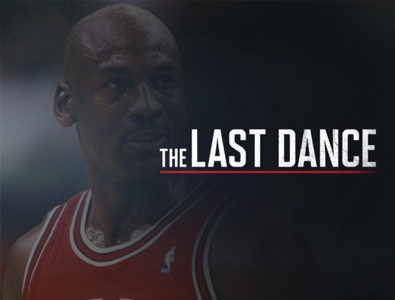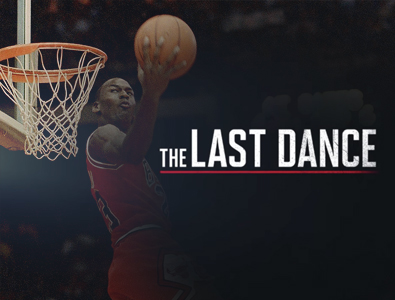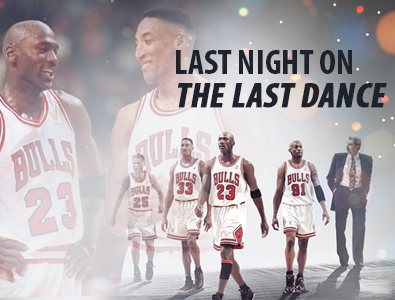On this page
Analysis of the Opening Episodes of the Documentary “The Last Dance”
Introduction
“ The Last Dance ” is a compelling ten-part documentary that airs on ESPN and Netflix, detailing the journey of Michael Jordan and the Chicago Bulls during the memorable 1997-1998 NBA season. The first two episodes premiered on Sunday, April 19, 2020, with subsequent episodes airing every Sunday until May 17, 2020. This captivating series features previously unseen footage along with interviews from individuals closely linked to Jordan and the Bulls during their legendary run in the 90s.
The focus of the first two episodes centers around the early lives and careers of Michael Jordan and Scottie Pippen . It delves into the formation of the Chicago Bulls under the guidance of their former general manager, Jerry Krause, and highlights the various conflicts and disagreements between players and coaches regarding the future direction of this iconic team. Below, you will find important elements, key moments, and major narratives that emerged in the introductory episodes of “The Last Dance”.
The Introduction
The opening of the first episode showcases key moments from the Chicago Bulls' initial five NBA championships. Key figures such as Jordan, Pippen, Dennis Rodman, coach Phil Jackson, owner Jerry Reinsdorf, and general manager Jerry Krause are introduced. Following their first five NBA victories, discussions emerged about whether to maintain the current team or reshape it for the future.
Jordan argued that since they were still winning, the front office should refrain from dismantling the team until they faced defeat. Conversely, Krause was eager to validate his importance to the franchise by initiating a rebuild, aspiring to maintain success and gain recognition for his role in the Bulls' on-court achievements.
Making Fun of Krause
The documentary captures instances where Jordan would joke and tease Krause, often poking fun at his short stature and weight. While some viewers might view MJ as a bully, I interpret his actions as playful banter with his controversial general manager.
Should Phil Jackson continue as the head coach of the Bulls?
The relationship between Krause and Jackson was strained, as Jackson sought better pay while Krause believed that another coach could achieve similar results. Jordan publicly declared that he would not remain with the team if Jackson was not retained as head coach. Krause considered replacing Jackson with Tim Floyd . Ultimately, Jackson was offered a one-year deal, but Krause made it clear that this would be his last season coaching the Bulls, wrapping up the 1997-1998 NBA campaign.
The Bulls Travel to Paris
In the summer of 1997, the Chicago Bulls enjoyed a trip to Paris, France, showcasing their international fame and the global admiration they had garnered. The locals treated and revered Jordan like a deity, with his popularity surpassing that of even the Pope or the President of the United States. Michael Jordan Jordan's Journey at the University of North Carolina
This segment explores an exchange between Jordan and his mother during his college years at the University of North Carolina . In a heartfelt letter, he requested financial assistance, confessing that he was down to his last $20, apologized for an unpaid phone bill, and asked her to send him stamps. This anecdote illustrates how Jordan began his journey in basketball as a financially struggling college student, ultimately becoming one of the most celebrated and wealthy athletes in history.
Dean Smith, Jordan's coach at UNC, characterized him as one of the most dedicated and competitive athletes he had ever coached. He emphasizes how much MJ evolved through his relentless work ethic and determination to excel in basketball. Roy Williams, the assistant coach at the time, recounts how Jordan expressed his ambition to be the best player and the hardest worker ever in the prestigious basketball program.
The championship showdown between North Carolina and Georgetown, led by Patrick Ewing, is recounted. They highlight significant plays and crucial shots made by Jordan throughout the game. It was an intensely competitive match, with Georgetown leading by a single point with just 32 seconds remaining, prompting Coach Smith to call a timeout. They designed a play for the freshman Jordan to take the decisive shot. Michael shared how his opponents had no inkling he would attempt the winning basket, which he made effortlessly, ultimately clinching the NCAA National Championship for North Carolina.
They covered the NCAA Following his junior year, Jordan initially planned to go back for his senior season. However, Coach Smith encouraged him to enter the 1984 NBA draft, believing he was ready to turn professional. The documentary depicts the Houston Rockets selecting Hakeem Olajuwon as the top overall pick in that draft. Even Rod Thorn, the Bulls' general manager at the time, admitted he would have made the same choice. Olajuwon's selection has never been criticized, as he helped the Rockets secure two NBA championships and earned a place among the greatest 50 players in NBA history.
Entering the 1984 NBA Draft
The Portland Trail Blazers, with the second overall pick, already had superstar Clyde Drexler occupying the same position as Jordan, which led them to select Sam Bowie instead. The Chicago Bulls, seeing potential in Jordan, picked him third overall with hopes of revitalizing their underperforming franchise.
One of the most humorous moments from the first two episodes emerges when Jordan candidly mentions coming from a clean program at North Carolina, implying he wasn’t involved in the party scene. When the interviewer refers to an article that described the Bulls as a ‘traveling cocaine circus,’ Jordan bursts into laughter, reflecting his amusement over the characterization.
The Bulls Traveling Cocaine Circus
Jordan shares an amusing memory from his rookie NBA season when he found himself in a hotel in Peoria, Illinois. He knocked on a teammate’s door, introducing himself as MJ, and upon entering, he was confronted with a scene he had never witnessed before. Jordan described it as having lines on one side, marijuana smokers on another, and women in the mix, prompting him to promptly decide to leave. He noted that if law enforcement had raided the room, he would have been as guilty as everyone present. At that moment, he realized he was on his own, determined to stay focused on success while his teammates were engaged in a party lifestyle.
It quickly became evident to everyone that Jordan was a remarkable talent who would leave a lasting impression. He captivated audiences on the court, and his influence on both the Chicago Bulls and the NBA was instantly recognizable. Before his arrival, the Bulls struggled to fill arenas for their games, but his entry led to sold-out crowds every night they played. Jordan was awarded the Rookie of the Year award after the 1984-1985 NBA season.
Jordan’s Immediate Impact
The inaugural team meeting for the 1997-1998 Chicago Bulls convened at their training facility, the Berto Center. Phil Jackson distributed the team handbook , which prominently featured the title “The Last Dance”. Jackson emphasized to the players the importance of unity, effort, and maintaining focus on winning, as this was considered their last opportunity to achieve greatness together.
The Last Dance
Hailing from a small town in Arkansas, he attended the University of Central Arkansas . He started off as a 6-foot-1 guard, but during college, he grew significantly to become a 6-foot-7 forward. His game developed remarkably, showcasing a blend of excellent ball control and passing skills cultivated during his time as a guard, combined with the powerful scoring and dunking capabilities he honed as a forward.
Episode 2 Mainly Focuses on Pippen
Scottie Pippen Pippen was chosen as the fifth overall pick in the first round of the 1987 NBA Draft by the Seattle Supersonics. However, the Chicago Bulls made a trade to acquire him the night before the draft, which meant he was destined for the Bulls despite being selected by the Supersonics. Pippen demonstrated remarkable prowess on the court, establishing himself early in his notable NBA career.
In 1991, Pippen signed a 7 year contract worth $18 million . At that time, he believed he was making a wise decision to ensure his financial future, providing stability in case of injuries that would prevent him from supporting his large, impoverished family. However, this agreement swiftly emerged as undervalued, failing to reflect Scottie's true contributions to the Chicago Bulls.
After suffering a torn tendon in his ankle during the 1996-1997 playoff season, Pippen faced a dilemma. Due to Krause and the Bulls' unwillingness to renegotiate his contract to better reflect his value, Pippen chose to postpone his surgery. His disappointment over being undervalued led him to wait until the start of the 1997-1998 regular season to undergo the operation. Pippen openly stated, “I chose to delay surgery because I didn’t want to ruin my summer with rehab.”
Pippen’s Injury Situation
A Deep Dive into the Initial Two Episodes of “The Last Dance”
Find the Top Online Casinos in Your Region
Jordan’s Broken Foot
Calculator for Lottery Jackpot Ticket Sales
Detailed Analysis of the First and Second Episodes of the Documentary “The Last Dance”
“ The Last Dance ”is a ten-part documentary series that airs on ESPN and Netflix, chronicling Michael Jordan and the Chicago Bulls' journey during the 1997-1998 NBA season. The series premiered on Sunday, April 19, 2020, with new episodes airing weekly for a total of five Sundays until May 17, 2020. This fascinating documentary features previously unseen footage and insightful interviews with individuals who were integral to the Bulls and Michael Jordan during their peak in the 1990s.
The focus of the opening episodes revolves around the personal and professional backgrounds of Michael Jordan and Scottie Pippen . It illustrates how the Chicago Bulls were built thanks to insights from their former general manager, Jerry Krause, as well as the various conflicts that arose among players and coaching staff regarding future directions for this legendary team. Below, you will find key takeaways, significant events, and pivotal narratives from these episodes of “The Last Dance”.
The introductory moments of the first episode showcase the highlights from the Chicago Bulls' first five NBA championships, introducing iconic figures such as Jordan, Pippen, Dennis Rodman, head coach Phil Jackson, owner Jerry Reinsdorf, and general manager Jerry Krause . After achieving their initial five titles, discussions arose regarding whether to maintain the existing roster or initiate a rebuilding phase for the Bulls moving forward.
The 1986 NBA Playoffs
Jordan expressed his belief that as long as the team continued to win, management shouldn't dismantle it, insisting that changes should only come when they no longer performed well. Krause, on the other hand, aimed to enhance his own legacy by reconfiguring the team, hoping to maintain success while also claiming recognition for his role in the Bulls' on-court achievements.
The documentary also includes moments that illustrate Jordan's playful banter with Krause, often poking fun at his stature. While some viewers might view MJ's jokes as harsh or bully-like, it seems more to reflect a friendly dynamic rather than overt animosity toward his sometimes controversial GM.
Sources:
“Michael Jordan” , basketball-reference.com, April 20, 2020.
“Scottie Pippen” , basketball-reference.com, April 20, 2020.


